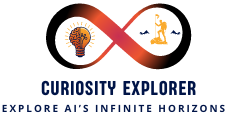At the Aspen Ideas Festival, the CEO of Microsoft AI captivated the audience with his vision for the future of artificial intelligence (AI). His insightful discussion covered a range of topics, from the potential of AI to revolutionize our daily lives to the pressing challenges of ensuring AI safety. A key highlight of his talk was the discussion on synthetic data, a promising solution to the growing challenge of data scarcity in AI development. Watch the YouTube video of the Microsoft AI CEO discussing the transformative potential of synthetic data at the Aspen Ideas Festival here.
The AI Data Challenge: Are We Running Out of Data?
As AI continues to evolve, one of the major hurdles faced by the industry is the availability of high-quality data. The rapid advancement of AI technologies has led to an exponential increase in the demand for data. However, there’s a growing concern that we might eventually run out of new data to train these sophisticated models. This data scarcity not only hampers the development of AI but also limits its potential to achieve greater accuracy and reliability.
Synthetic Data: A Game-Changer for AI Development
Synthetic data emerges as a game-changing solution to this challenge. By generating artificial data that mimics real-world data, synthetic data provides a limitless supply of training material for AI models. This not only helps in overcoming data scarcity but also enhances the diversity and quality of data, leading to more robust and versatile AI systems.
One innovative approach to synthetic data generation is highlighted in a recent report that introduces a methodology for persona-driven data synthesis using large language models (LLMs). This methodology leverages diverse perspectives encapsulated within LLMs to create diverse synthetic data at scale.
For a comprehensive understanding of the innovative persona-driven data synthesis methodology, read the detailed report. This report introduces a novel approach to creating diverse synthetic data at scale, essential for advancing AI technologies. Access the full report here.
Persona-Driven Data Synthesis: A Breakthrough Approach
The report, titled “Persona-Driven Data Synthesis Using Large Language Models,” presents a groundbreaking methodology that uses personas to generate synthetic data. Here are some key highlights from the report:
- Persona Hub Construction:
- Text-to-Persona: Personas are derived from massive web data by prompting an LLM with various texts to infer potential personas associated with those texts.
- Persona-to-Persona: Additional personas are generated based on interpersonal relationships derived from the initial set of personas.
- Deduplication: MinHash and embedding-based deduplication techniques ensure the uniqueness and diversity of personas.
- Methodology and Use Cases:
- Math and Logical Reasoning Problems: Personas guide LLMs to create context-specific math and logical reasoning problems.
- Instructions (User Prompts): Diverse instructions are synthesized to simulate various user interactions with LLMs.
- Knowledge-rich Texts: Personas help generate informative articles on diverse topics, enhancing LLM pre-training and post-training.
- Game NPCs: Personas are used to create a variety of non-player characters for games, enriching game design with diverse character backgrounds.
- Tool (Function) Development: Personas predict the tools users might need, enabling pre-built tools to be integrated into LLM interactions.
- Evaluation:
- In-distribution and Out-of-distribution Tests: The synthesized data significantly enhances the performance of models, achieving impressive results on mathematical reasoning benchmarks.
- Diversity and Quality Assessment: The synthetic data maintains high validity and diversity, ensuring robust performance across different personas and use cases.
- Broad Impact and Ethical Considerations:
- Data Creation Paradigm Shift: The methodology enables LLMs to create new data from various perspectives, potentially transforming how data is created and utilized.
- Reality Simulation: Persona Hub can simulate diverse user behaviors and responses, providing valuable insights for policy testing, product launches, and user behavior modeling.
- Full Memory Access of LLMs: Persona Hub offers a method to access the full knowledge encapsulated within LLMs, although current limitations include hallucination and lossy data conversion.
- Ethical Concerns: Potential risks include training data security, replication of LLM capabilities, and the spread of misinformation.
Conclusion
The future of AI is both exciting and challenging, with data scarcity being one of the most significant obstacles. Synthetic data, particularly through innovative methodologies like persona-driven data synthesis, offers a promising solution. By generating diverse and high-quality synthetic data, we can ensure the continuous advancement of AI technologies. For a deeper understanding of this groundbreaking approach, the “Persona-Driven Data Synthesis Using Large Language Models” report serves as an excellent example to explore. Link below – https://arxiv.org/pdf/2406.20094

